Vincent Dassi uses pulped cardboard to make and repair everyday objects
Design Academy Eindhoven graduate Vincent Dassi has developed a form of papier-mâché that allows anyone to make and repair household objects using recycled cardboard boxes.
Pulp It sees Dassi use a food processor to transform cardboard into paper pulp, which he then moulds into 3D forms using several different techniques.
The material can be used to create new objects, repair broken or disused items, or customise objects for different uses.
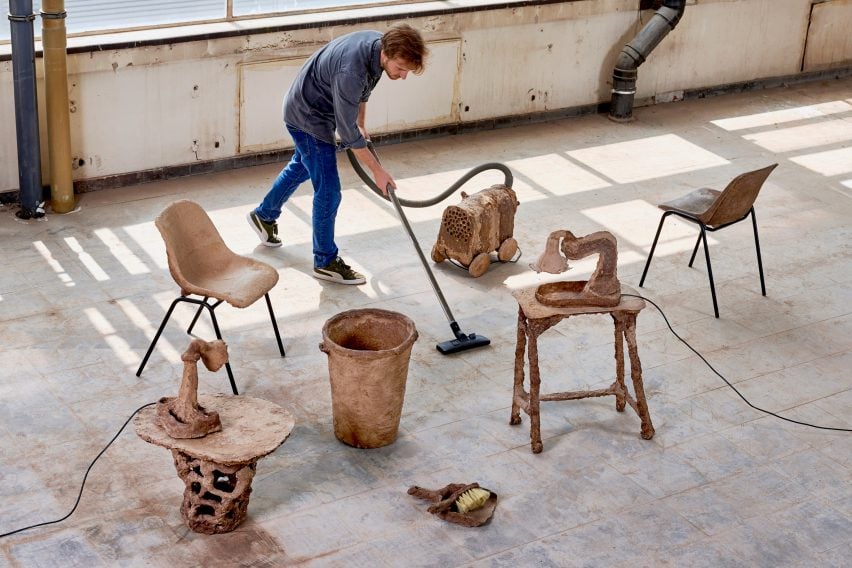
"As a designer, you can feel very stressed and guilty about creating objects," said Dassi, who studied on DAE's bachelor degree programme.
"I wanted to find a way to create objects with the lowest ecological costs possible," he told Dezeen.
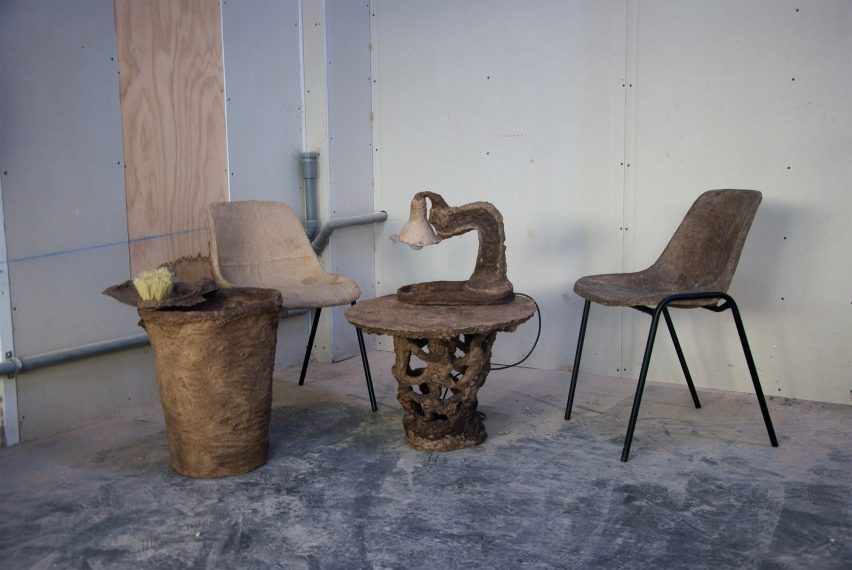
Dassi's project is deliberately low-tech, as he wanted to create an approach that would be easy for others to replicate.
He has posted the "recipe" for his paper pulp on the Pulp It website, where he also shares videos demonstrating how to make everyday objects, including a chair and a desk lamp.
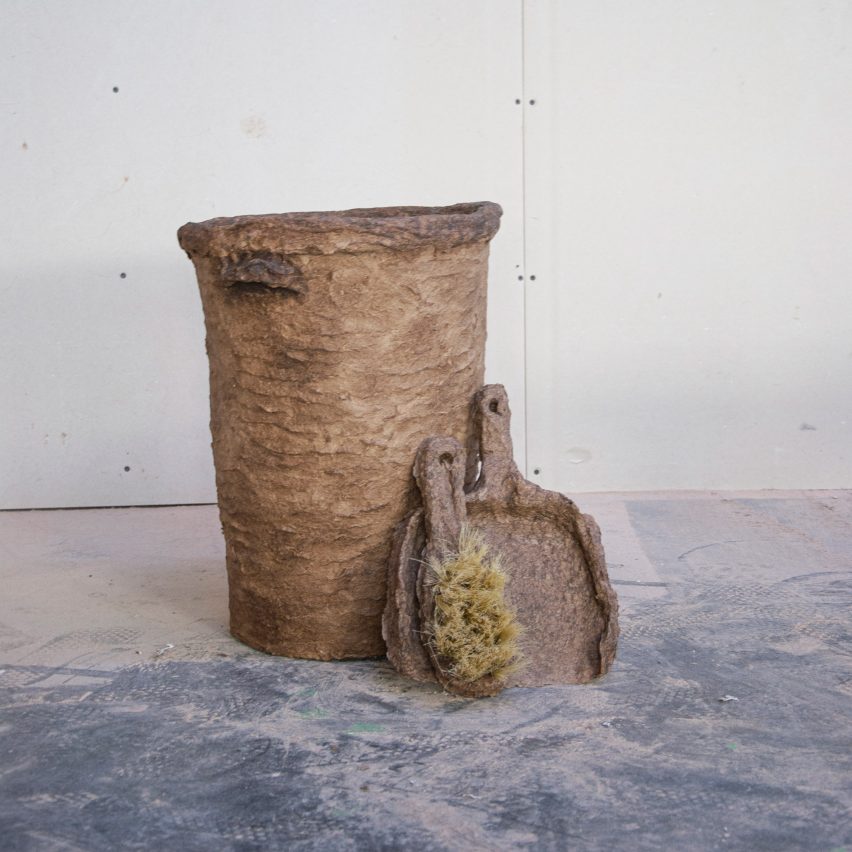
The designer said his aim is to offer an alternative to consumer culture by empowering people to make their own objects by hand using locally sourced materials, rather than buying them online.
"The maker is no longer a simple consumer, but takes part in the process of making, which leads to a better appropriation of the object," he said.
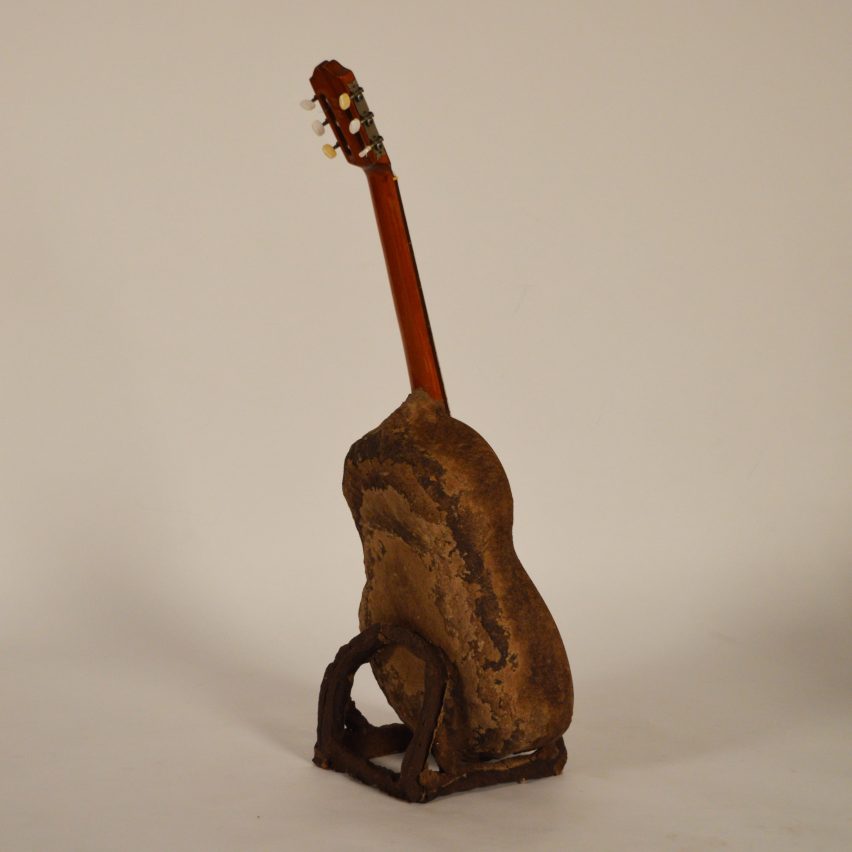
Dassi's paper pulp recipe consists of two ingredients, which are both made in the blender.
The first is the paper clay, consisting of shredded paper mixed with water. The second is a glue made by combining rice flour with boiling water.
The designer has also built his own press, which he uses to squeeze the water out of his paper clay.
Instructions for how to build this using simple off-the-shelf materials can be downloaded from the website.
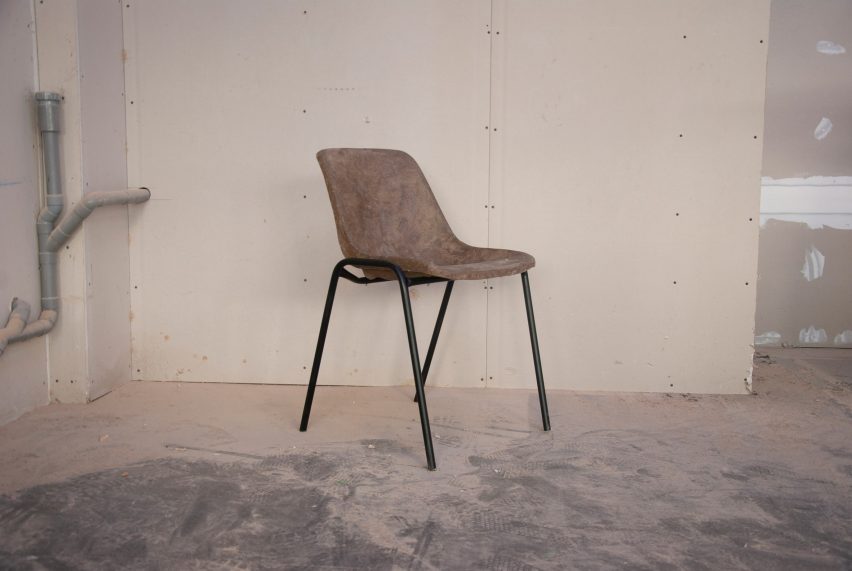
To mould the cardboard pulp, Dassi has devised a simple method that involves 3D printing a mesh made out of PLA plastic, then heating it up so it can be shaped around a surface. He then uses a 3D pen to fix the formwork.
Once the shape is formed, it can be used as a mould for the pulp to set inside.
"This is a project about how to be autonomous and how to be local," Dassi explained. "You can make this material yourself and it can fulfil any need that you want."
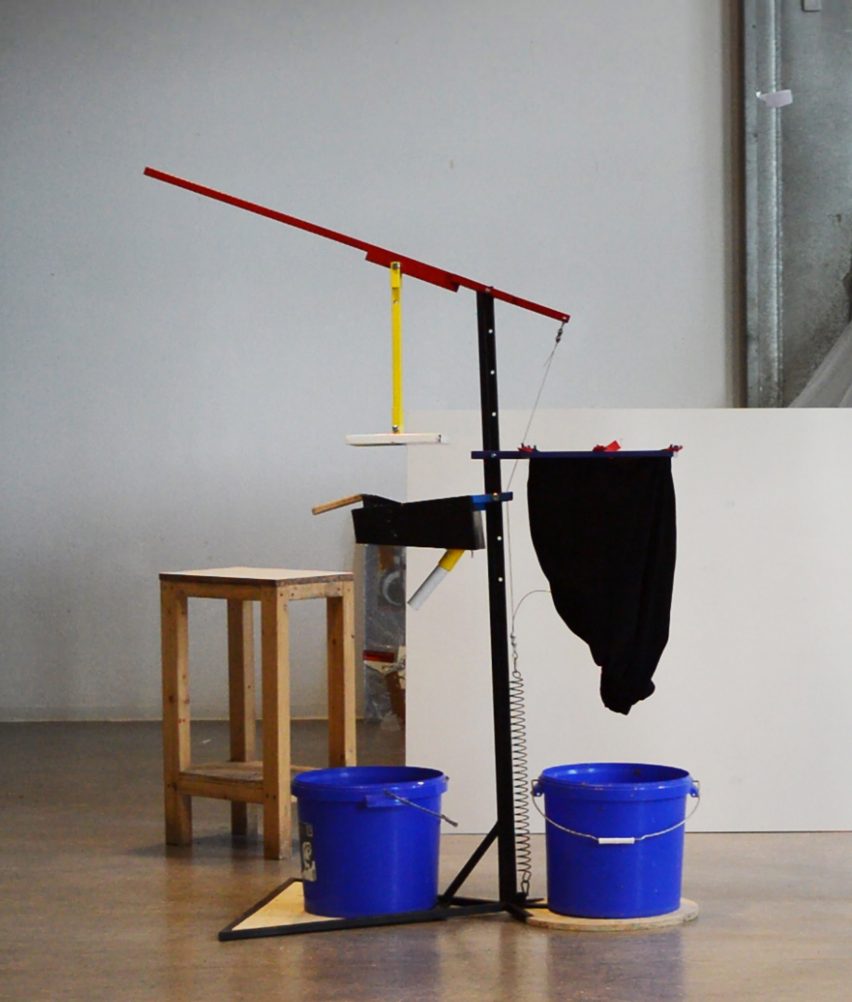
The set pulp should hold its shape, although it isn't waterproof. Dassi suggests adding a wax coating, but points out that this makes the material more difficult to recycle.
"The fact that it is water sensitive can be seen as an advantage," he suggested, noting that plastic's waterproof properties lead to litter and pollution.
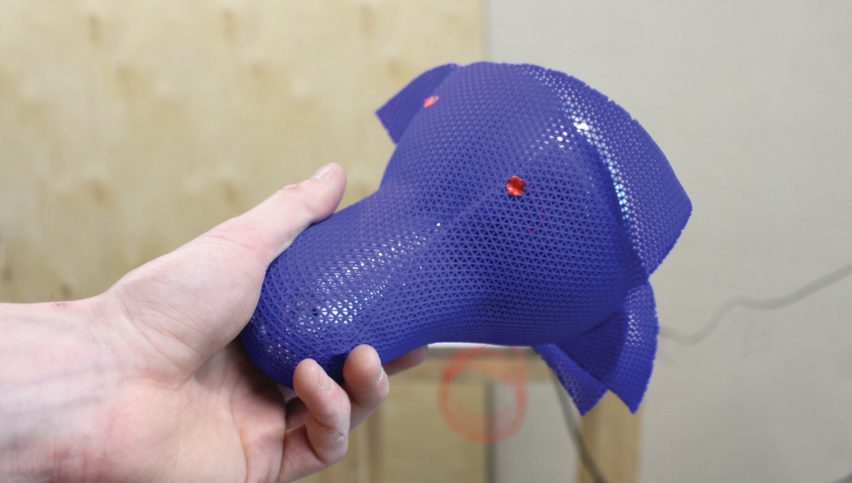
Dassi's project was exhibited at the DAE graduate show, where other projects on display included garments designed to heal trauma, a giant dress and tools for turning human breath into clouds.
The DAE Graduation Show 2021 was exhibited from 16 to 24 October, as part of Dutch Design Week. See Dezeen Events Guide for an up-to-date list of architecture and design events taking place around the world.